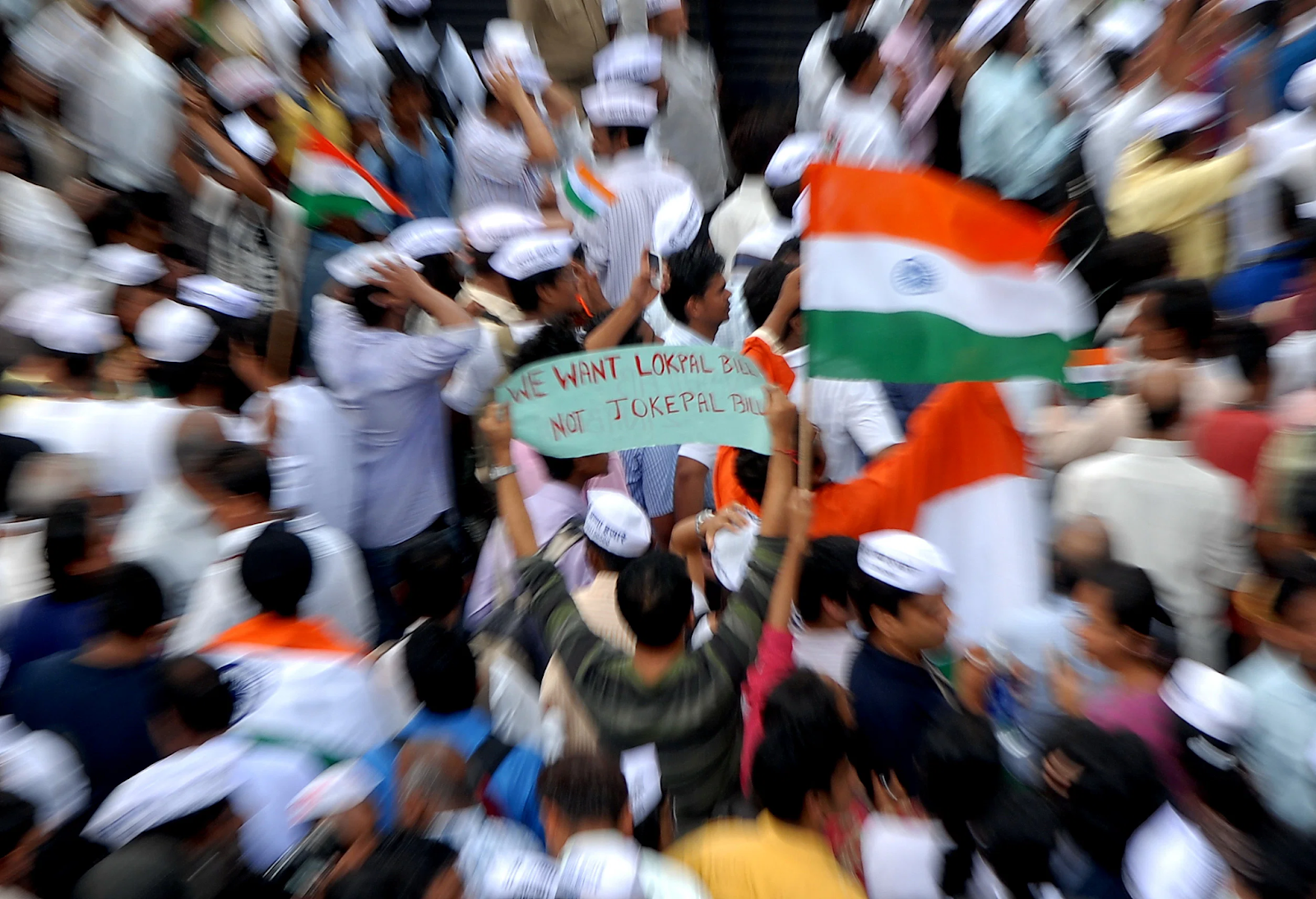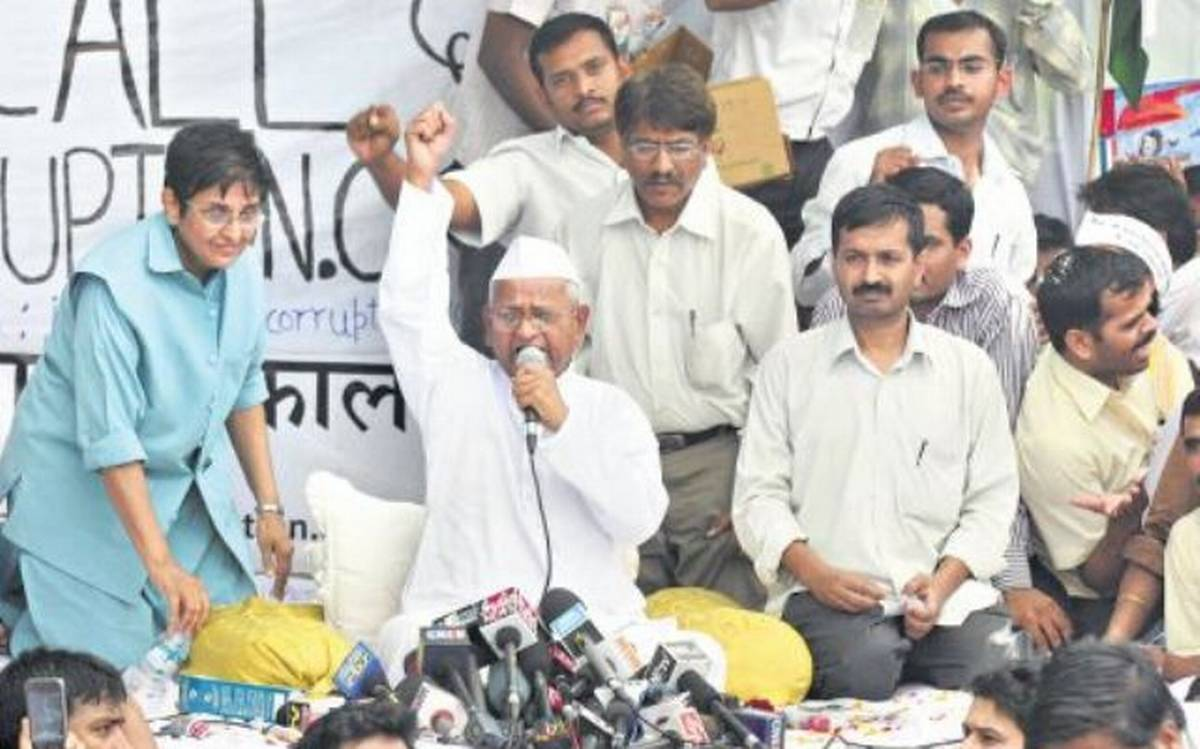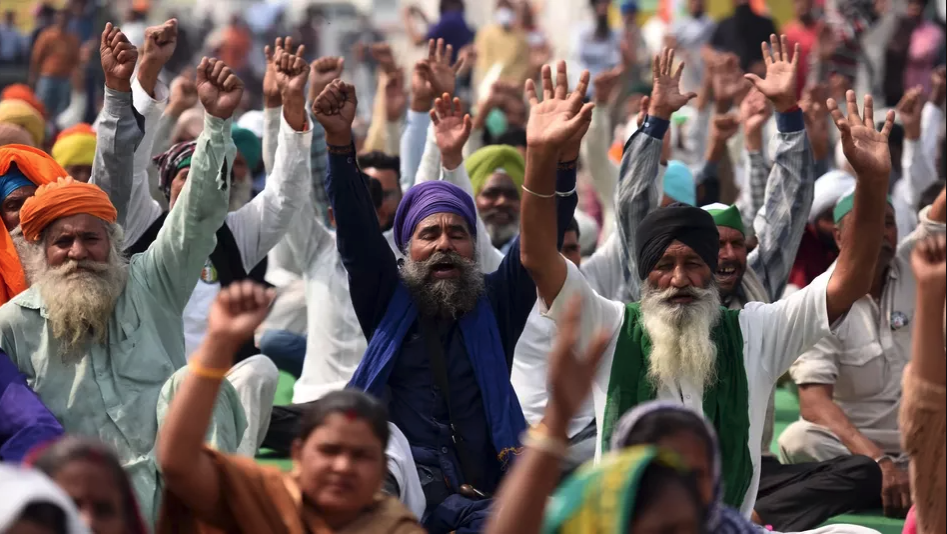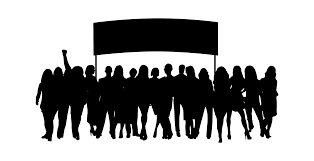A political movement is an attempt to persuade people or the government to act. When a social movement starts in the area of politics, it is called a political movement. A political movement may be organized around a single issue or a set of issues.
Introduction
These political movements aim to convince citizens or the government to take action on the issues and concerns that are the focus of the movement. These movements may be local, regional, national, or international in scope. Some movements aimed to change government policy, such as the anti-war movement, the ecology movement, and the anti-globalization movement, and some aimed to establish or broaden the rights of subordinate groups, such as abolitionism, the Civil rights movements, feminism, men’s right movement, gay rights movements, or the inclusive human rights movement.

Jan Lokpal Bill Andolan
The Jan Lokpal Bill is a proposed anti-corruption law in India, and the bill was proposed by anti-corruption social activists from the civil society as opposed to the official Lokpal Bill proposed by the government of India. The Jan Lokpal bill was designed to effectively deter corruption and create an independent body similar to the Election Commission of India with the power to investigate politicians and bureaucrats without prior government permission. The bill was first introduced in 1969 and failed to become law for nearly four decades. The bill was initially drafted by prominent civil society activists Justice Santosh Hedge, Prashant Bhushan, and Arvind Kejriwal.
The Lokpal will be supervised by the cabinet secretary and the Election Commission. Thus, it will be completely independent of the government and free from ministerial influence in its investigations.
Members of the Lokpal will be appointed by judges, Indian Administrative Service officers with a clean record, private citizens, and constitutional authorities through a transparent and participatory process. The shortlisted candidates are invited for interviews by a selection committee.
Through this bill, the cases against corrupt people will not linger on for years anymore. In any case, the investigation should be completed in one year, and the trial should be done in the next year. So that any corrupt officer, politician, or judge is sent to jail within two years.
This bill helps people get their ration card, passport, or voter card as they can directly approach Lokpal if they are not being made, the police are not registering their case, or any other work is not being done in a prescribed time. People can also report cases of corruption to Lokpal.

Anti-reservation Protests, 2006
The government in India promised in 2006 to implement a 27% reservation for OBCs in institutes of higher education after the 2006 state assembly elections, in accordance with the 93rd Constitutional Amendment, which was passed unanimously by both Houses of Parliament. The 93rd Constitutional Amendment made the government free to make special provisions for the “advancement of any socially and educationally backward classes of citizens.” This reservation policy is to be implemented in private-sector institutions and companies as well. This proposal from the government led to opposition from the student community, as the proposal, if implemented, would reduce seats for the general category from the existing 77.5% to less than 50.5%.
The student formed the group “Youth for Equality” and demanded that the government take its decision back to grant more reservations through peaceful protests. During the protest, a controversial incident took place on May 13 when medical students protesting in Mumbai were lathi-charged by the police, leading to a nationwide strike by medical students protesting lathi-charge. In Delhi, a human chain rally was organized on May 20, by students of IIT Delhi with the support of PAN IIT. Students also went on hunger strikes for several days.
Farmers in India protest
Indian farmers voiced their opposition to new restrictions they claimed would harm their livelihood. The so-called greatest protests in history started in 2020 but persisted until early 2021. The government disconnected internet access at protest locations near New Delhi in reaction to marches in February. The designers of an online toolbox intended to support the farmers’ cause were the target of a criminal probe by Delhi police. More than half of India’s workforce works in agriculture.













